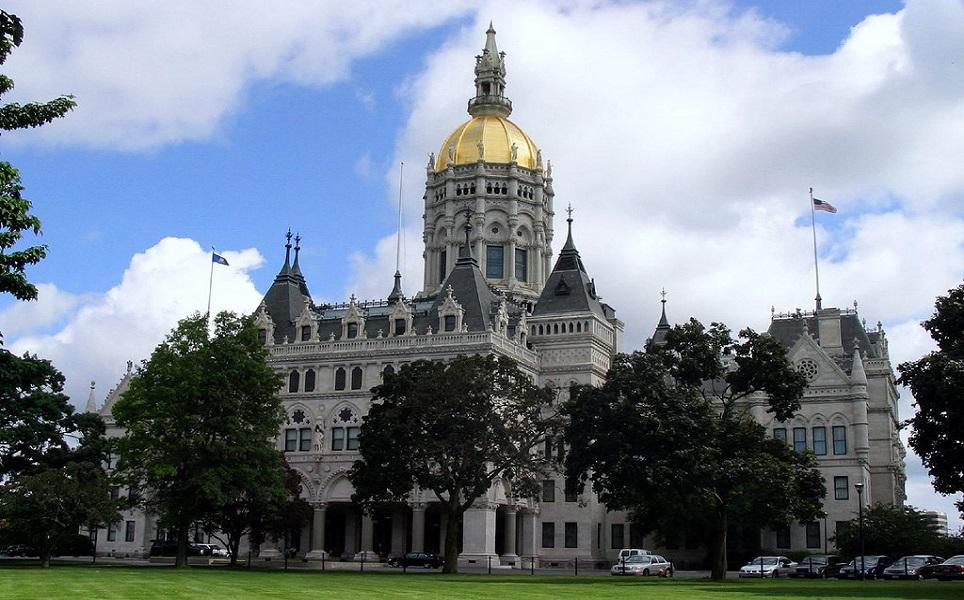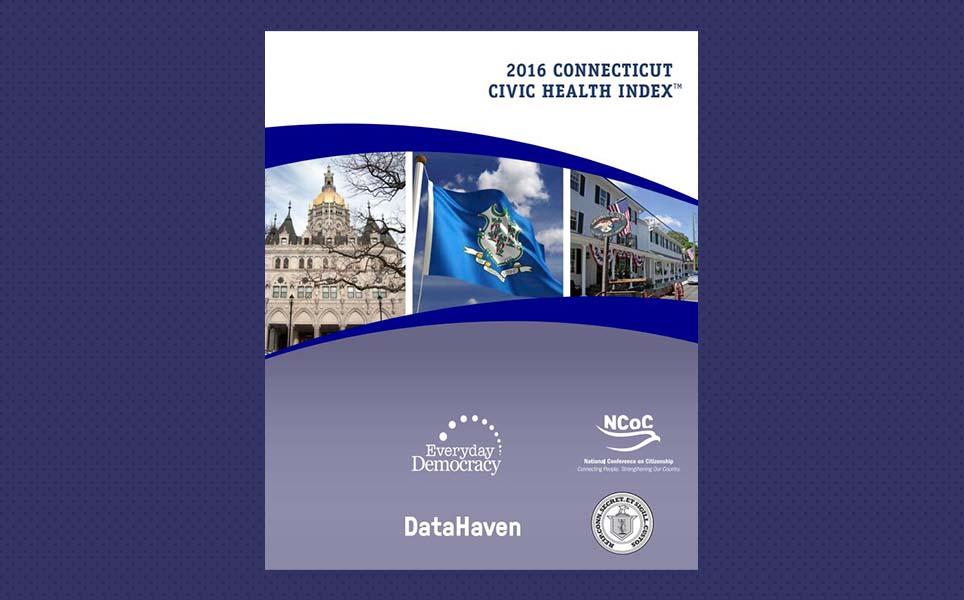Transcript of 5-minute radio segment:
An advisory committee in Connecticut has released its second report on civic and public participation in the state showing how publicly involved people are. The information is a mixed bag ahead of a major election year.
The report evaluates how involved people are in public life through indicators such as voting, volunteering and memberships in groups or organizations. Connecticut’s Civic Health Advisory Group released its first report in 2011 working with the National Conference on Citizenship and the Hartford-based Everyday Democracy. The foundation’s executive director Martha McCoy co-chairs the advisory group.
“It’s how we contribute as individuals and families to the common good,” McCoy said. “It’s how we take that individual or family action, for example volunteering or charity, but also how well we connect with other people and cross divides to work with people that we may not already know.”
According to the data, Connecticut ranks above the national average when it comes to charitable giving, volunteering, voting and attending public meetings. But with just 35 percent of residents belonging to a community group, the state ranks 36th nationally. New York ranks 45th, Massachusetts 43rd, New Hampshire 19th and Vermont is third. The report concludes demographic and socioeconomic factors define trends in civic participation. For example, 37 percent of those with at least a bachelor’s degree volunteer while just 13 percent of people without a high school diploma do. That trend holds true when comparing household incomes – those with more money volunteer more. Secretary of State Denise Merrill is the advisory committee’s other co-chair.
“There is a stark contrast in our state between the wealthy and the poor – the so-called two Connecticuts,” Merrill said. “It’s as evident in civic behavior as it is in education, health and the many other factors that we have tracked. So despite a general high-level of educational attainment in our state, people who are poor or who have lower levels of formal education participate less in our government at all levels.”
The report includes information from a wellbeing survey of about 17,000 Connecticut residents in all 169 municipalities conducted by DataHaven. Mary Buchanan is a project manager with the nonprofit.
“Residents of wealthy towns, mostly in Fairfield County, and residents of urban core neighborhoods – 95 percent of residents in wealthy Connecticut towns trust their neighbors,” Buchanan said. “Just 62 percent of residents of urban core neighborhoods do. That’s a 33 percent gap.
Advisory committee co-chair McCoy says the report is a blueprint for improvement.
“Research shows us that civic health is really critical to all other kinds of health,” McCoy said. “For example we know that civic health is directly related to how well we do in times of deep trouble such as economic recession or when a natural disaster hits. If we have the bonds of trust to work with each other or create opportunities for each in those times we will fare better.”
She offered an example of where work needs to continue.
“When you look across Latino, African American or Asian American communities you really see a lot of associating,” McCoy said. “You’re seeing a lot of group membership and membership in faith communities, often more so than in white communities. So what we are lacking in our state, and we’re working on this, is creating those bridges between that informal or group joining association and being tapped into for having a voice in the public sphere.”
Secretary Merrill says gains associated with online voter registration and Election Day registration enacted over the past few years are not shown in the report because it covers 2011 to 2013. She says presidential election years are the best time to educate about the importance of civic participation. Stressing the benefit of developing habits when young, the Democrat says she is working with the education department on a program that recognizes schools, teachers and students that engage in community service and voting efforts.
“I think recognizing action where it’s effective is the only way you can convince people that group action does make a difference,” Merrill said. “And in fact it is the only thing that ever has.”
Link:
http://wamc.org/post/connecticut-group-releases-states-second-civic-health-report






